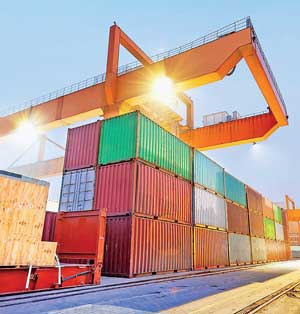22 Nov 2016 - {{hitsCtrl.values.hits}}
By Verité Research
The government has allocated Rs.10 billion to set up an EXIM bank for Sri Lanka. This has raised discussions and debate on whether Sri Lanka needs an EXIM bank or not. It is important that this dialogue considers the core reasons exporters (the most directly affected group) have put forward in asking the government to set one up. They are: the limited access, high cost and narrow range of export finance facilities available to companies, especially small and medium enterprises (SMEs), which undermine their ability to succeed in foreign markets.
A study by Verité Research confirms that ‘export finance’ can play an important role in Sri Lanka’s efforts to revive its stagnating export sector. An EXIM bank is a widely-used mode of delivering finance facilities to exporters. The basis for the opposition or scepticism towards setting up an EXIM bank emanates from two factors. The first is a narrow understanding of export finance to mean just ‘trade finance’, i.e., facilitating transactions between the buyer and supplier (e.g. letters of credit (LCs)). The second is a ‘doubt’ as to the ‘ability’ of the government to properly implement it. Failure to improve access to and reduce the cost of export finance based on these factors, however, would not bode well for a country that has made reviving exports a key priority.
Understanding export finance
The most commonly understood function of export finance is facilitating payment terms between an exporter and buyer such as LCs and documentary credit (DC). These trade finance instruments help the exporter and buyer to share risks associated with international transactions. Commercial banks of Sri Lanka are the key institutions that provide trade finance facilities for the
export sector. The definition used by Verité Research in its study on export finance extends beyond mere trade finance. It covers a wide range of export finance facilities provided to the export sector. This includes the provision of export insurance, loans to meet export working capital requirements and different types of officially supported strategic export credit schemes. The latter, which can be in the form of credit guarantees, interest rate support, etc., are used strategically to incentivise companies to find new markets, expand into new sectors, upgrade quality and add value.
The study found the range of export finance facilities and support schemes available to Sri Lankan exporters – specially SMEs – to be grossly inadequate compared to other regional middle-income countries. Even the trade finance facilities available to exporters have room to improve. For example, at present, the banking sector does not provide buyers’ credit, i.e., extending credit to the importer, instead of the exporter, which is widely made available in
other countries.
Further, the study identifies several possible measures to reduce the risk premium levied on loans to SME exporters, which increases the borrowing cost. At present, the utilisation level of officially state-supported export credit schemes by the government to incentivise the private sector to diversify markets and products and add value remain limited. Several Sri Lankan exporters interviewed emphasised that in the past, such schemes needed the initial push to access and succeed in foreign markets.
Legacy of low government credibility
Successive governments in Sri Lanka have a lacklustre track record in running institutions professionally and independently. Hence, there is a trust deficit towards the government’s ability to facilitate export finance through an EXIM bank. Further, the efficiency and effectiveness of the public sector also raise doubts in the minds of many, as to its ability to properly run such an institution. However, rejecting the importance of having a mechanism to improve access and reduce the cost of export finance on this basis would however, be akin to “throwing the baby out with the bath water”.
Way forward – looking ahead
The government has clearly identified the acceleration of exports as a pressing need. Export finance presents itself as a significant facilitator of export promotion. Therefore, it would be timely to duly recognise its potential for the sustained meeting of export targets. It should also be recognised that several short-term measures are indeed available for the government to address the limited access to export finance. This includes further enhancing the type of facilities available through the commercial banking system.
However, sustained export development demands that focus on short-term measures should not be accompanied or followed by a failure to secure more export finance through a specialised financial institute such as an
EXIM bank.
(Verité Research is a private think tank that provides strategic analysis for Asia. Its main research and advisory divisions are in economics, politics, law and media and is based in Colombo, Sri Lanka. Follow us on: Twitter, Facebook and LinkedIn and visit our website at www.veriteresearch.org. For comments, email [email protected])
25 Nov 2024 2 hours ago
25 Nov 2024 3 hours ago
25 Nov 2024 3 hours ago
25 Nov 2024 4 hours ago
25 Nov 2024 5 hours ago